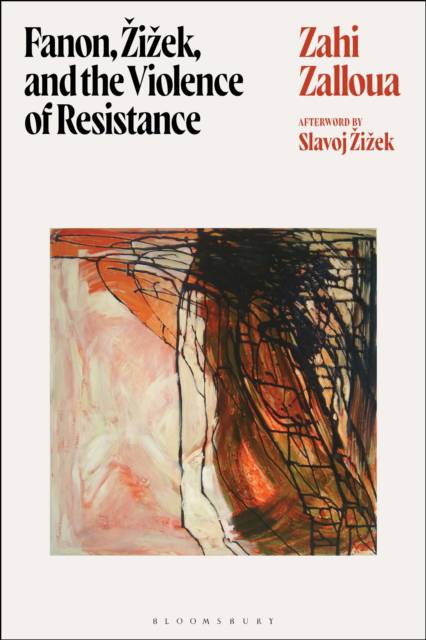
- Afhalen na 1 uur in een winkel met voorraad
- Gratis thuislevering in België vanaf € 30
- Ruim aanbod met 7 miljoen producten
- Afhalen na 1 uur in een winkel met voorraad
- Gratis thuislevering in België vanaf € 30
- Ruim aanbod met 7 miljoen producten
Zoeken
€ 152,95
+ 305 punten
Uitvoering
Omschrijving
In a novel pairing of anti-colonial theorist Frantz Fanon with Marxist-Lacanian philosopher Slavoj Zizek, Zahi Zalloua explores the ways both thinkers expose the violence of political structures.
This inventive exploration advances an anti-racist critique, describing how ontology operates in a racial matrix to produce some human bodies that count and others (deemed not-quite- or non-human) that do not. For Fanon and Zizek, the violence of ontology must be met with another form of violence, a revolutionary violence that delegitimizes the logic of the symbolic order and troubles its collective fantasies. Whereas Fanon begins his challenge to ontology by exposing its historical linkages to Europe's destructive imperialist procedures before proceeding to "stretch" Marxism, along with psychoanalysis, to account for the crushing (neo)colonial situation, Zizek premises his work on the refusal to accept the totality of ontology. Because of these different points of intervention, Fanon and Zizek together offer a powerful and multifaceted assessment of the liberal anti-racist paradigm whose propensity for identity politics and aversion to class struggle silence the cry of the dispossessed and foreclose radical change. Avoiding contemporary separatist temptations (decoloniality and Afropessimism), and breaking with a non-violent, sentimentalist futurology that announces more of the same, Fanon and Zizek point in a different direction, one that eschews identitarian thought in favor of a collective struggle for freedom and equality.
This inventive exploration advances an anti-racist critique, describing how ontology operates in a racial matrix to produce some human bodies that count and others (deemed not-quite- or non-human) that do not. For Fanon and Zizek, the violence of ontology must be met with another form of violence, a revolutionary violence that delegitimizes the logic of the symbolic order and troubles its collective fantasies. Whereas Fanon begins his challenge to ontology by exposing its historical linkages to Europe's destructive imperialist procedures before proceeding to "stretch" Marxism, along with psychoanalysis, to account for the crushing (neo)colonial situation, Zizek premises his work on the refusal to accept the totality of ontology. Because of these different points of intervention, Fanon and Zizek together offer a powerful and multifaceted assessment of the liberal anti-racist paradigm whose propensity for identity politics and aversion to class struggle silence the cry of the dispossessed and foreclose radical change. Avoiding contemporary separatist temptations (decoloniality and Afropessimism), and breaking with a non-violent, sentimentalist futurology that announces more of the same, Fanon and Zizek point in a different direction, one that eschews identitarian thought in favor of a collective struggle for freedom and equality.
Specificaties
Betrokkenen
- Auteur(s):
- Uitgeverij:
Inhoud
- Aantal bladzijden:
- 304
- Taal:
- Engels
Eigenschappen
- Productcode (EAN):
- 9781350513280
- Verschijningsdatum:
- 24/07/2025
- Uitvoering:
- Hardcover
- Formaat:
- Genaaid
- Afmetingen:
- 156 mm x 234 mm
- Gewicht:
- 598 g

Alleen bij Standaard Boekhandel
+ 305 punten op je klantenkaart van Standaard Boekhandel
Beoordelingen
We publiceren alleen reviews die voldoen aan de voorwaarden voor reviews. Bekijk onze voorwaarden voor reviews.







